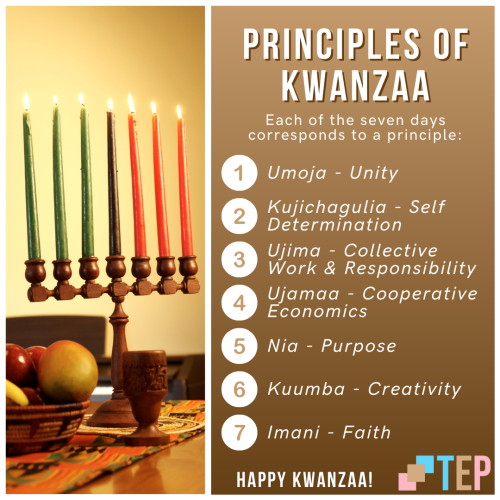#nguzo saba
Kwanzaa was first celebrated in 1966 after having been created by professor of Africana studies, activist, and author Maulana Karenga to help give identity, purpose, and direction to African Americans.
Each of the seven days of Kwanzaa (between December 26 and January 1) correspond to the Nguzo Saba (the Seven Principles):
- Umoja - Unity - To strive for and to maintain unity in the family, community, nation, and race.
- Kujichagulia - Self-Determination - To define and name ourselves, as well as to create and speak for ourselves.
- Ujima - Collective Work and Responsibility - To build and maintain our community together and make our brothers’ and sisters’ problems our problems and to solve them together.
- Ujamaa - Cooperative economics - To build and maintain our own stores, shops, and other businesses and to profit from them together.
- Nia - Purpose - To make our collective vocation the building and developing of our community in order to restore our people to their traditional greatness.
- Kuumba - Creativity - To do always as much as we can, in the way we can, in order to leave our community more beautiful and beneficial than we inherited it.
- Imani - Faith - To believe with all our hearts in our people, our parents, our teachers, our leaders, and the righteousness and victory of our struggle.
Happy Kwanzaa to those who celebrate it. While it does not receive the same visibility or acknowledgement as other end-of-year holidays, it is important to include those who observe these seven days!
[ID: Graphic split in half. The left half is a photo of a kinara, a seven-space Kwanzaa candleholder. The right side is a brown gradient with white text describing the principles of Kwanzaa. The TEP logo and “Happy Kwanzaa” in white are at the bottom right.]
Post link

